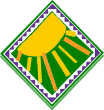Computing
Intent
At Summerlea School, we want pupils to be masters of technology: technology is everywhere and will play a pivotal part in students' lives and future careers. Therefore, we want to model and educate our pupils on how to use technology positively, responsibly and safely. We want our pupils to be creators not just consumers and our broad curriculum encompassing computer science, information technology and digital literacy reflects this.
We recognise that the best prevention for a lot of issues we currently see with technology/social media is through education. We intend, through our thorough and frequent teaching of “how to stay safe online”, to equip our children with the knowledge and resilience to function effectively and maintain their wellbeing within our increasingly digital world.
We recognise that technology can allow pupils to share their learning in creative ways. We also understand the accessibility opportunities technology can provide for our pupils. Our knowledge-rich curriculum has to be balanced with the opportunity for pupils to apply their knowledge creatively which will in turn help our pupils become skilful computer scientists.
We encourage staff to embed computing across the whole curriculum to make learning creative and accessible. We want our pupils to be fluent with a range of tools to best express their understanding and by Upper Key Stage 2, children will have the independence and confidence to choose the best tool to fulfil the task and challenge set by teachers.
Implementation
We offer a structured sequence of lessons, helping teachers to ensure that they have covered the skills required to meet the aims of the National Curriculum. The content allows for a broad, deep understanding of computing and how it links to children's lives. It offers a range of opportunities for consolidation, challenge and variety. This allows children to apply the fundamental principles and concepts of computer science. They develop analytical problem-solving skills and learn to evaluate and apply information technology. It also enables them to become responsible, competent, confident and creative users of information technology.
Lessons contain revision, analysis and problem-solving. Through the sequence of lessons, we intend to inspire pupils to develop a love of the digital world, see its place in their future and use their digital footprint respectfully and effectively. Our lesson plans and resources help children to build on prior knowledge at the same time as introducing new skills and challenges. Each Computing lesson across the school begins with a focused e-safety discussion, pitched to the age and stage of the year group’s learners. This means we regularly reinforce the messages of maintaining their safety online. This is also reinforced during scenario and role-played based activities in RSHCE lessons and circle times.
In Key Stage 1, the focus is on developing the use of algorithms, programming and how technology can be used safely and purposefully.
In Key Stage 2, lessons still focus on algorithms, programming and coding but in a more complex way and for different purposes. Children also develop their knowledge of Internet services and the safe and purposeful use of the Internet and technology. Data Handling is featured more heavily in Upper Key Stage 2.
Skills learnt through Key Stage 1 and Lower Key Stage 2 are used to support data presentation. Adult guides are offered, as well as end-of-unit assessments, enabling staff to feel confident in the progression of skills and knowledge and that outcomes have been met.
Impact
Learning in computing is enjoyed across the school and provides children with the tools to see themselves as confident participators in their future digital lives.
Children can use digital and technological vocabulary accurately and are also confident using a range of hardware and software.
Children see the digital world as part of their world, extending beyond school, and understand that they have choices to make. They become confident and respectful digital citizens and should go on to lead happy and healthy digital lives.
To view our computing curriculum, click here.

